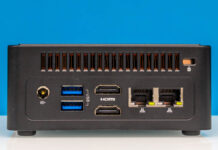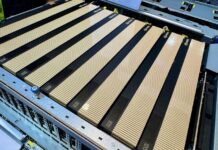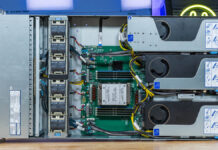Motherboard Block Diagram
We wanted to take a moment and look at the block diagram for the ASUS Pro WS W790E SAGE SE that underpins this system.
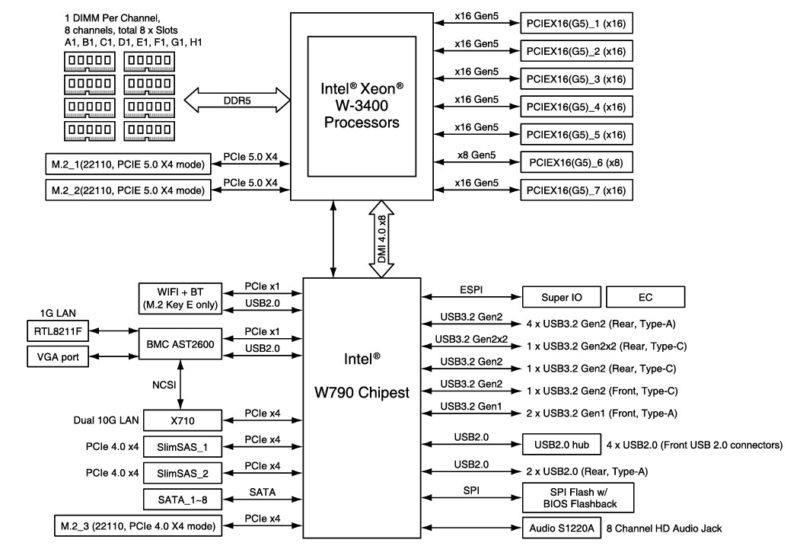
While many systems offer large arrays of slots, yet deliver very few PCIe lanes to those slots, Falcon Northwest is doing the opposite with this ASUS motherboard. Of the seven PCIe Gen5 x16 slots, only one is an x8 electrical (similar bandwidth to a PCIe Gen4 x16 slot for perspective.) This platform is delivering huge PCIe bandwidth.
Performance
In terms of performance, we ran a number of workloads on the system, but we also have a varied set of comparison systems. Those include the Lenovo ThinkStation P7, a self-built workstation with the same motherboard, and the Supermicro SuperWorkstation SYS-551A-T (the latter serving as our baseline.)
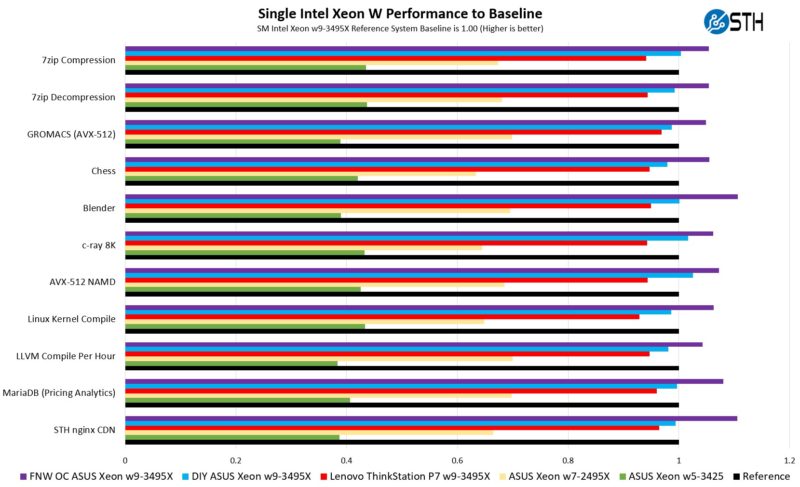
The short summary of what we found is that the performance of the Falcon Northwest system was much higher across the board, and even on more involved benchmarks that are not just CPU-bound. We were not even using the highest-power tuning settings in the Falcon Northwest system and it beat our self-built system with the same CPU and motherboard. It also demolished the Lenovo ThinkStation P7 with the same CPU. Lenovo, and other OEMs, severely constrain the power consumption of the Xeon w9-3495X and that leads to appreciably lower performance across the board.
ECC Memory Overclocking
Just for some sense of how much faster the Kingston Fury Renegade Pro 16GB DDR5-6000 ECC RDIMMs are in this system, here is the base setup with standard DDR5-4800 SK hynix ECC RDIMMs:
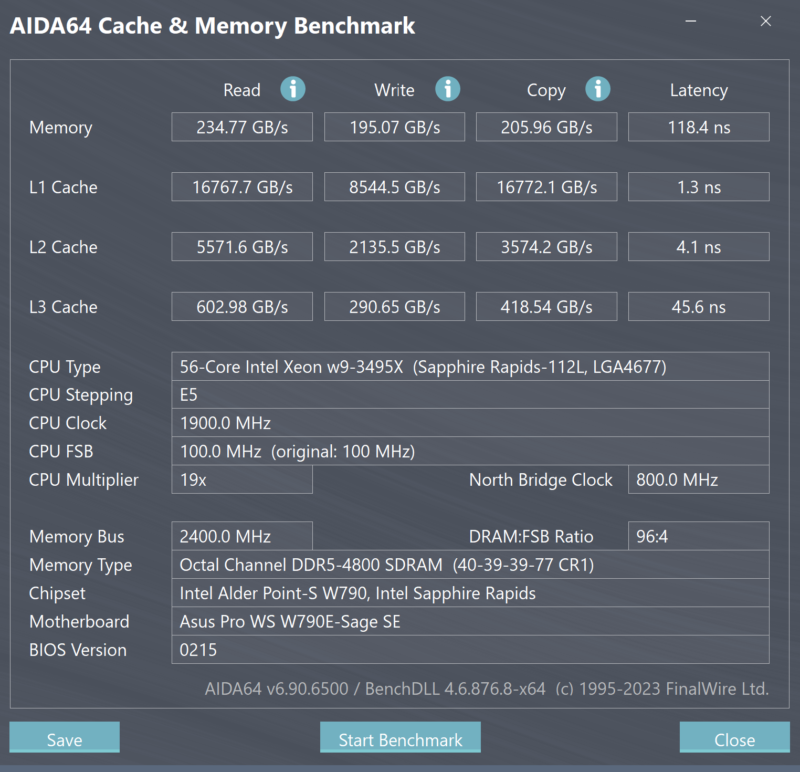
Here is the AIDA64 cache and memory benchmark with the new DDR5-6000 Kingston ECC RDIMMs in the Falcon Northwest.
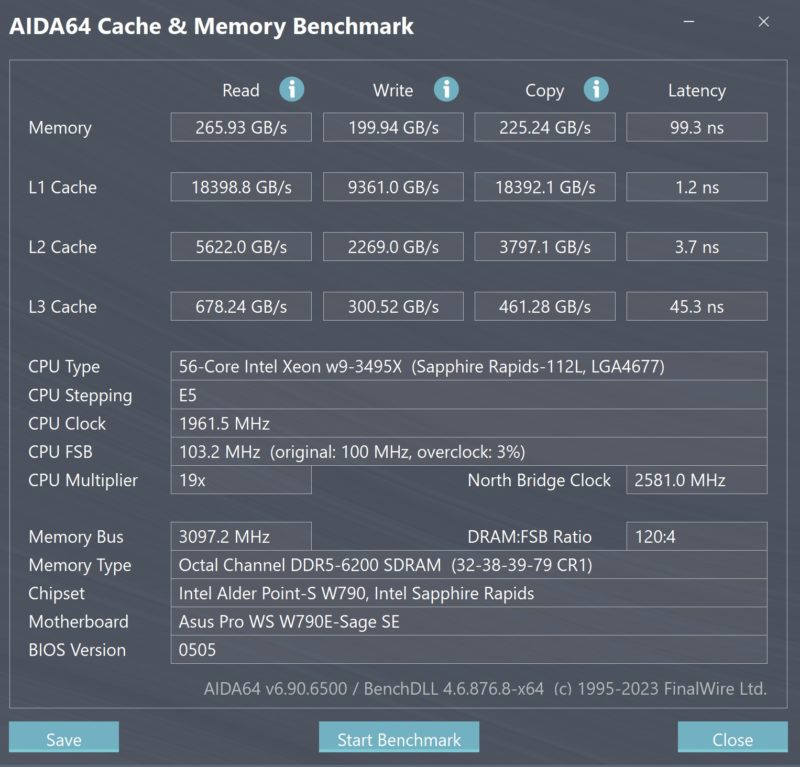
That is a generation or more of memory performance gains by using higher-speed memory.
PCIe Gen5 NVMe Storage
On the storage side, even the M.2 storage is much faster than it used to be. Here is the Crucial T700 2TB M.2 drive in the system.
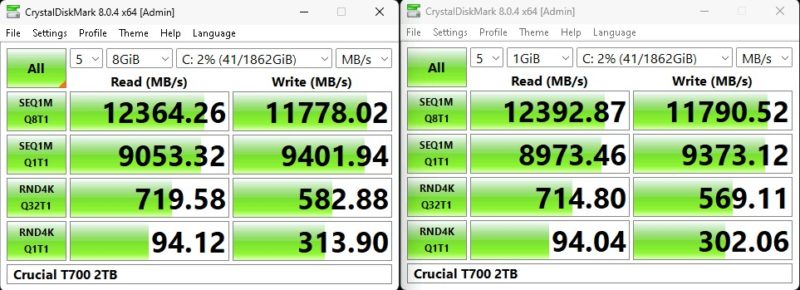
Just for some frame of reference on the top-line sequential numbers, PCIe Gen4 NVMe SSDs topped out a bit over 7GB/s, but many drives operate closer to 5GB/s in sequential speeds. You can see our massive SSD testing data set for those. Will recently reviewed the Crucial T700 2TB PCIe Gen5 M.2 NVMe SSD for us, and found it is a very fast drive. For those who need fast storage, the Falcon Northwest system with the Crucial T700 PCIe Gen5 NVMe SSD is surprisingly good. If you are coming from PCIe Gen3 era workstations, this is closer to having a RAID 0 array with four drives in it in terms of performance.
Next, let us get to the power consumption and noise.

